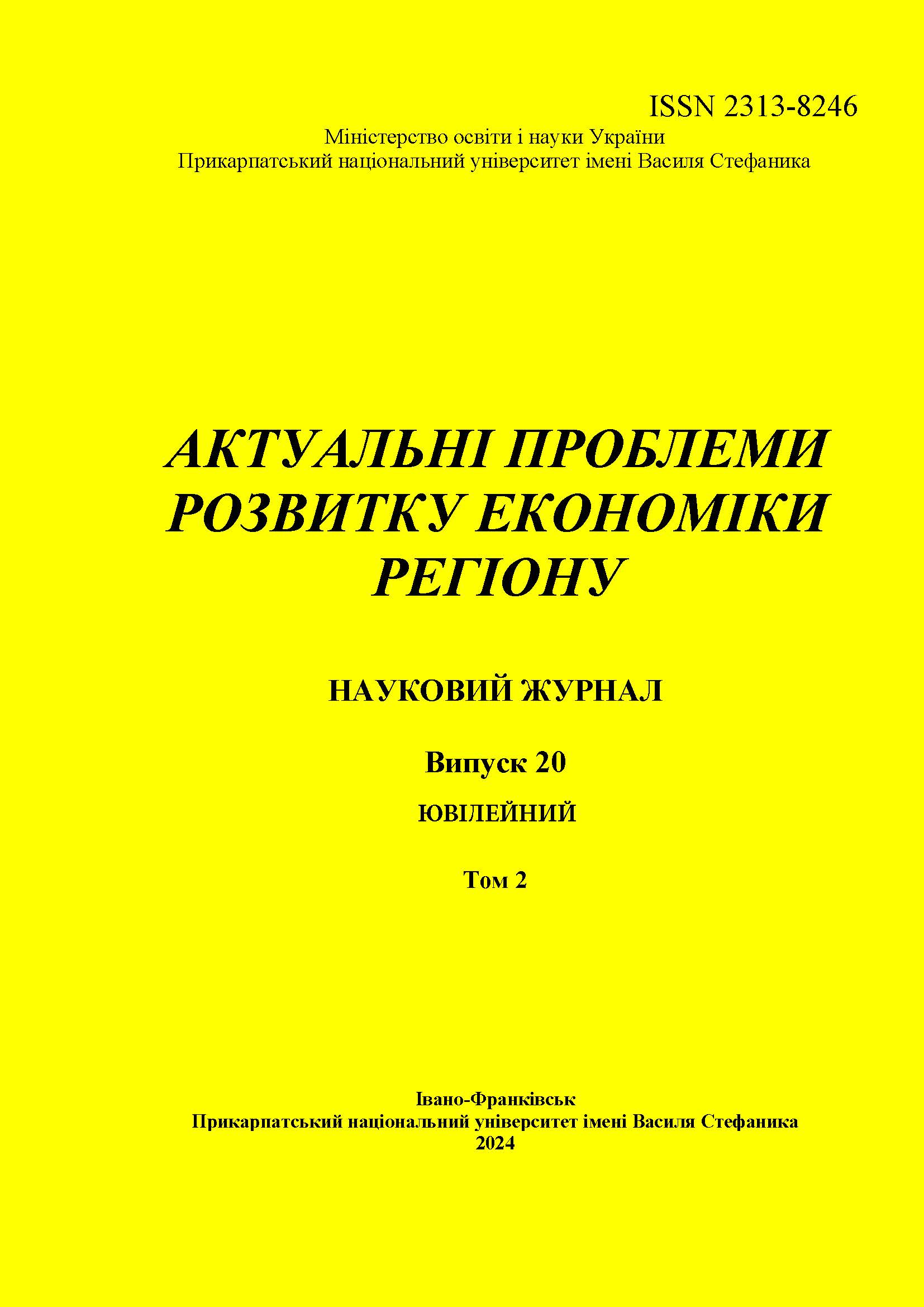IMPLEMENTATION OF FISCAL SECURITY IN THE CONTEMPORARY CONDITIONS OF INTERCONNECTEDNESS OF THE WORLD ECONOMY
DOI:
https://doi.org/10.15330/apred.2.20.291-301Keywords:
world financial system, globalization of financial markets, financial integration, financial stability, international financial relations, financial architecture, financial security, fiscal security, FATF, crisesAbstract
The article investigates the essence and challenges of ensuring financial security, particularly fiscal security of states, in the context of the transformation of the global economy. A fundamental analysis was conducted, allowing for the formulation of hypotheses and the ranking of countries based on their level of development. The evolution of the concept of state security is examined, and the theoretical approaches of different countries to defining the essence and methodology of financial security calculations are summarized. It is noted that an integral component of financial security is fiscal security, as achieving stability in this area under conditions of economic instability is a criterion for the state's condition. Fiscal security is also a measure of the population's living standards and an indicator of the successful implementation of the state's strategic priorities. For the analysis of fiscal security, the methodology defined in the legislation of selected countries was used. It is mentioned that while financial security indicators are similar across countries, their values differ, so a "normal" step was calculated for each country. It was found that the level of fiscal security affects the macroeconomic stability and economic growth of states. Specifically, countries with a high level of fiscal security demonstrate more stable economic indicators and a lower risk of financial crises. The statistical analysis included a comparison of key fiscal security indicators such as public debt, budget deficit, tax burden, and budget revenues. For example, in 2022, Germany's public debt level was 69% of GDP, the budget deficit was 3.5%, the tax burden was 40%, and budget revenues were 1.5 trillion euros. In Sweden, public debt was 39% of GDP, the budget deficit was 1.8%, the tax burden was 44%, and budget revenues were 0.9 trillion euros. The research results showed that countries with a more efficient fiscal security management system have a higher level of socio-economic development. For example, EU countries such as Germany and Sweden demonstrate a high level of fiscal security due to transparent tax systems and effective public finance management. Therefore, ensuring fiscal security in the context of the transformation of the global economy and its increased interconnectedness at the present stage is a key factor for the stable development of states. This study emphasizes the importance of adapting fiscal security assessment methodologies to modern economic conditions and developing strategies aimed at increasing the resilience of states to economic challenges.
References
Grazhevska, N. “Ensuring the competitiveness of the national economy in the global post-industrial dimension.” Economy of Ukraine, no. 9, 2008, pp. 54–63.
Economic Security Act: hearings before the Committee on Finance, United States Senate. Congress. Senate. Committee on Finance, Published, 1935. White House, www.whitehouse.gov. Accessed 29 May 2024
Korchevs'ka, L. O. “International experience of formation of the institutional and legal framework security studies.” The Journal of International Economic Policy, iepjournal.com/journals/24/2016_4_Korchevska.pdf. Accessed 29 May 2024
“Analytical data on stock market development.” The official site of The National Securities and Stock Market Commission, 2019, www.nssmc.gov.ua/fund/analytics. Accessed 29 May 2024
Tymoshenko, O. V. “Methodical approaches to assessing the level of economic security of the state.” Vernadsky national library, nbuv.gov.ua/j- pdf/binf_2014_6_6.pdf. Accessed 29 May 2024
Blaschke, W., Jones, M. T., and M. S. Martinez Peria. “Stress Testing of Financial System: An Overview of Issues, Methodologies and FSAP experience.” IMF Working Paper, no. 01/88, 2011, р.56
Corden, M. “Ambulance Economics: The Pros and Cons of Fiscal Stimuli.” Open Economy Review, vol.22, no.2, 2011, pp. 235-245
Demirguc-Kunt, A., Detragiache, E., and T. T. Demirguc-Kunt. Banking on the Principles: Compliance with Basel Core Principles and Bank Soundness. World Bank Policy, 2006.
Edwards, R. W. Financial Soundness Indicators: Experience with the Coordinated Compilation Exercise and Next Steps: Background Paper (IMF Working Paper WP 101807). Washington, International Monetary Fund www.imf.org/external/pubs/ft/weo/2008/02/pdf/text.pdf. Accessed 29 May 2024
Elmendorf, D., and J. FurmanIf. When, How: A Primer of Fiscal Stimulus. The Hamilton Project. Washington, The Brookings Institution, 2008.
Hacker, M., et al. “Americans’ experiences with economic insecurity.” Economic Security Index, 2010, pp. 36-38. Washington, The Rockefeller Foundation, voices.washingtonpost.com/ezra-klein/ESI%20report%20embargo.pdf. Accessed 29 May 2024
Khan, H., Hughes, B. B., Irfan, M. T., Kumar, K. B., Rothman, D. S., and J. B..Solorzano. Reducing Global Poverty (Patterns of Potential Human Progress), 1st ed. Routledge, 2008.
Krugman, P. End This Depression Now!. W. W. Norton & Company; Illustrated edition, 2012.
Moran, Theodore H. American Economic Policy and National Security: The Nonmilitaty Aspects. New York, Council on Foreigh Relations Press, 1993. White House, www.whitehouse.gov. Accessed 29 May 2024
Trading Economics, tradingeconomics.com/country-list/personal-income-tax-rate
Yong, Jiang. “Economic Security: Redressing Imbalance.” China Sеcurity, vol. 3. no 2, 2010, pp. 66-85.
Downloads
Published
Issue
Section
License

This work is licensed under a Creative Commons Attribution-NonCommercial-NoDerivatives 4.0 International License.
- Authors retain copyright and grant the journal right of first publication with the work simultaneously licensed under a Creative Commons Attribution NonCommercial NoDerivs 4.0 Unported License that allows others to share the work with an acknowledgement of the work's authorship and initial publication in this journal.
- Authors are able to enter into separate, additional contractual arrangements for the non-exclusive distribution of the journal's published version of the work (e.g., post it to an institutional repository or publish it in a book), with an acknowledgement of its initial publication in this journal.
- Authors are permitted and encouraged to post their work online (e.g., in institutional repositories or on their website) prior to and during the submission process, as it can lead to productive exchanges, as well as earlier and greater citation of published work (See The Effect of Open Access)


